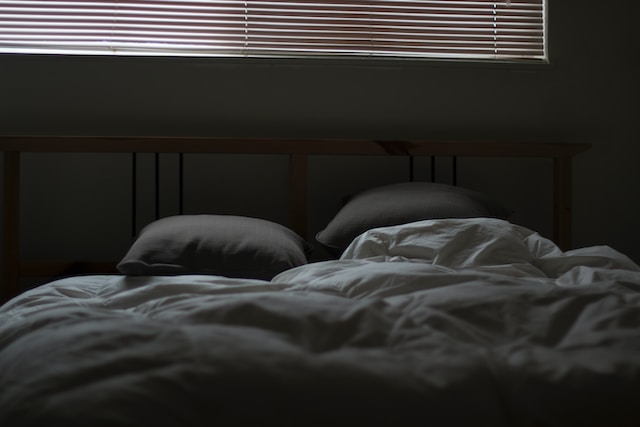Sleep and mental health are closely intertwined. The quality and quantity of sleep that we get can have a significant impact on our mental well-being. Conversely, mental health conditions such as anxiety and depression can affect our sleep patterns, leading to a vicious cycle of poor sleep and poor mental health. In this article, we'll explore the relationship between sleep and mental health in more detail.
Why is sleep important for mental health?
Sleep is essential for both physical and mental health. During sleep, our bodies repair and regenerate cells, while our brains consolidate memories and process emotions. Without enough sleep, we can experience a range of negative effects, such as fatigue, irritability, and difficulty concentrating.
When it comes to mental health, sleep plays an especially important role in regulating mood and emotional well-being. Studies have shown that people who don't get enough sleep are more likely to experience symptoms of anxiety and depression. Lack of sleep can also make it harder to cope with stress and can exacerbate symptoms of conditions like bipolar disorder and schizophrenia.
How much sleep do we need?
The amount of sleep that we need can vary depending on factors such as age, activity level, and overall health. Generally, adults need between 7-9 hours of sleep per night, while children and teenagers may require more. It's important to listen to your body and pay attention to how you feel after different amounts of sleep to determine how much is right for you.
How can we improve our sleep?
There are several strategies that we can use to improve the quality of our sleep and support our mental health:
Stick to a regular sleep schedule:
Going to bed and waking up at the same time each day can help regulate our body's natural sleep-wake cycle.
Create a sleep-conducive environment:
Make sure your bedroom is cool, dark, and quiet, and that your bed and pillows are comfortable.
Limit screen time before bed:
The blue light emitted by electronic devices can disrupt our natural sleep rhythms, so it's best to avoid using them for at least an hour before bedtime.
Practice relaxation techniques:
Activities like meditation, deep breathing, and yoga can help calm the mind and promote relaxation before bed.
Avoid caffeine and alcohol:
Both caffeine and alcohol can interfere with sleep quality, so it's best to avoid them or limit them as much as possible, especially in the evening.
How can mental health conditions affect sleep?
Mental health conditions can have a significant impact on our sleep patterns. For example, anxiety can cause racing thoughts and hypervigilance, making it difficult to fall asleep or stay asleep. Depression can also interfere with sleep, leading to insomnia or excessive sleepiness.
In addition, conditions like bipolar disorder and schizophrenia can disrupt sleep patterns in different ways. During manic episodes, people with bipolar disorder may require less sleep than usual, while during depressive episodes, they may need more. Schizophrenia can also lead to disrupted sleep patterns, such as difficulty falling asleep, frequent awakenings, and daytime sleepiness.
What can we do if mental health conditions are affecting our sleep?
 |
| Empty Bed |
If you're experiencing disrupted sleep due to a mental health condition, it's important to talk to your healthcare provider. They may be able to recommend treatments or therapies to help manage your symptoms and improve your sleep quality.
In some cases, medication may be prescribed to help regulate sleep patterns. Therapy can also be helpful, especially cognitive-behavioral therapy (CBT), which can help identify and address the thoughts and behaviors that may be contributing to poor sleep.
Conclusion
Sleep and mental health are closely linked, and taking care of one can have a positive impact on the other. By prioritizing good sleep habits and seeking treatment for mental health conditions that are affecting our sleep, we can support our overall well-being and lead happier, healthier lives.
Good Luck!👍

.jpg)





.jpg)




0 Comments